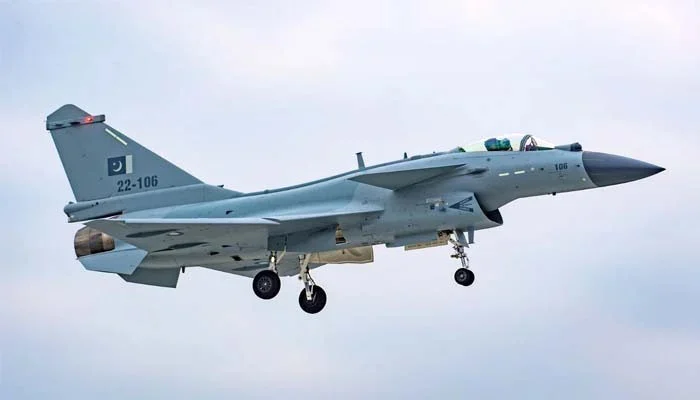Tensions between Indian and Pakistani have frequently flared over the disputed region of Kashmir, with both nuclear-armed neighbors often engaging in tit-for-tat military exchanges. One such major episode took place in February 2019, when Indian and Pakistani air forces clashed in the wake of a deadly terrorist attack in Pulwama, Jammu and Kashmir. In the aftermath, Indian officials claimed that Indian Air Force (IAF) fighter jets had successfully shot down Pakistani F-16 jets during the aerial engagement. However, in a development that reignited debate, a prominent U.S. defense analyst has labeled India’s claims as “nonsense,” prompting renewed scrutiny over what really transpired during that high-stakes encounter.
The statement, attributed to a former Pentagon official and defense expert with extensive experience analyzing South Asian military capabilities, challenges India’s narrative surrounding the February 27, 2019 dogfight. The analyst, speaking to a U.S.-based think tank, stated that there was “no credible evidence” to support the assertion that any Pakistani F-16 was downed by Indian forces. This counters the official position of the Indian government and adds weight to earlier reports by international agencies suggesting all Pakistani F-16s were accounted for after the incident.
The clash followed a suicide bombing carried out by the Pakistan-based militant group Jaish-e-Mohammed, which killed over 40 Indian paramilitary personnel. In retaliation, India launched airstrikes in Balakot, claiming to target terrorist infrastructure. A day later, Pakistani jets retaliated, resulting in an aerial skirmish between the two air forces.
India’s key claim during the incident was that its MiG-21 Bison aircraft, piloted by Wing Commander Abhinandan Varthaman, had successfully shot down a Pakistani F-16 before being downed himself and captured by Pakistan. While Varthaman was later returned to India as a goodwill gesture, the fate of the alleged Pakistani F-16 remained mired in controversy.
According to the U.S. defense analyst, satellite imagery, eyewitness accounts, and internal investigations conducted by U.S. defense contractors tied to the sale and maintenance of Pakistan’s F-16 fleet all contradict India’s version of events. A widely cited report by Foreign Policy magazine, which quoted unnamed U.S. officials, had earlier confirmed that all Pakistani F-16s were accounted for after a thorough inventory. These findings now appear to be supported by independent assessments from military observers and aerospace analysts.
Critics of India’s claim argue that New Delhi’s insistence on a downed F-16 may have been driven by domestic political considerations. At the time, national elections were approaching, and the government sought to portray strength in the face of perceived aggression. Asserting a tactical victory against Pakistan fit into the narrative of a strong, decisive leadership—a factor that may have influenced how events were presented to the public.
In contrast, Pakistan has consistently denied losing any aircraft during the skirmish, while maintaining that its retaliatory strikes were limited in scope and intended as a message rather than escalation. The Pakistani military also publicly showcased remnants of the downed Indian MiG-21 and captured footage of the Indian pilot, who was treated in accordance with the Geneva Conventions and swiftly returned.
The U.S. analyst’s comments reignite a debate not just about the credibility of each nation’s military claims but also the broader issue of information warfare. In a region where strategic narratives are shaped as much by perception as by fact, such assertions from external experts can play a significant role in international opinion.
While the Indian Air Force continues to stand by its version of events, the lack of independently verified proof of an F-16 downing makes the claim increasingly difficult to defend in the face of growing scrutiny. As relations between India and Pakistan continue to ebb and flow, the episode remains a potent reminder of the risks of military escalation and the powerful role that truth—or its manipulation—can play in regional geopolitics.
Topics #featured #Pakistan #trending pakistan




